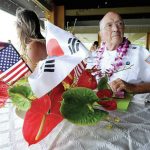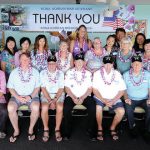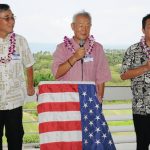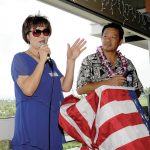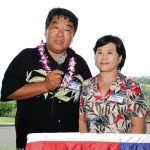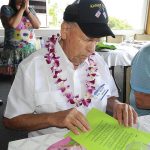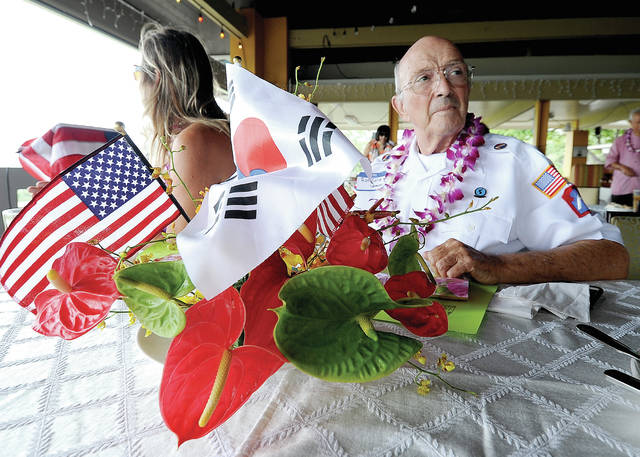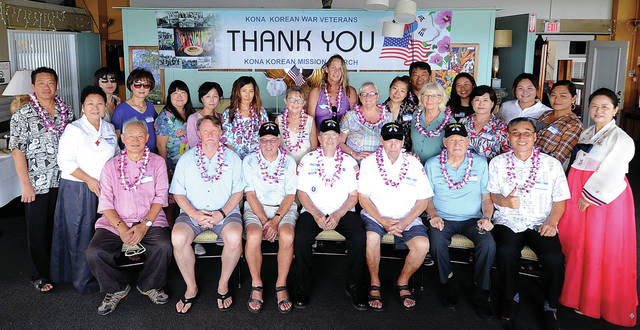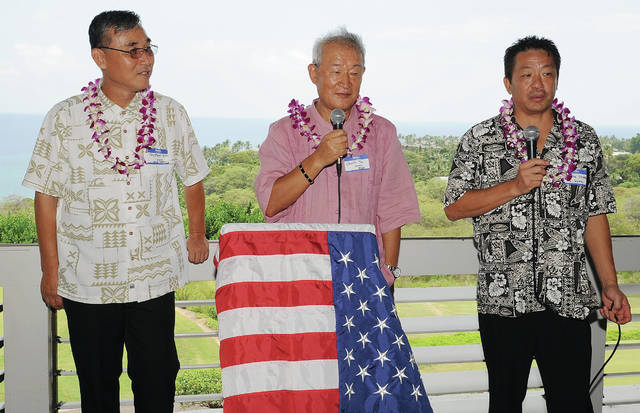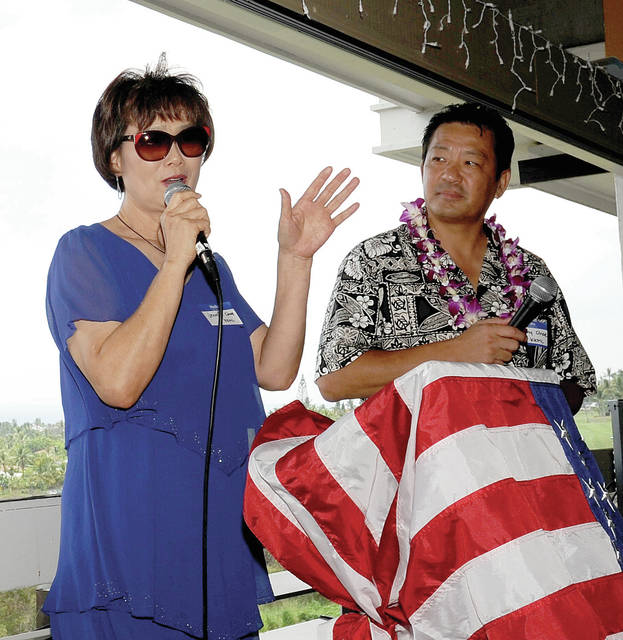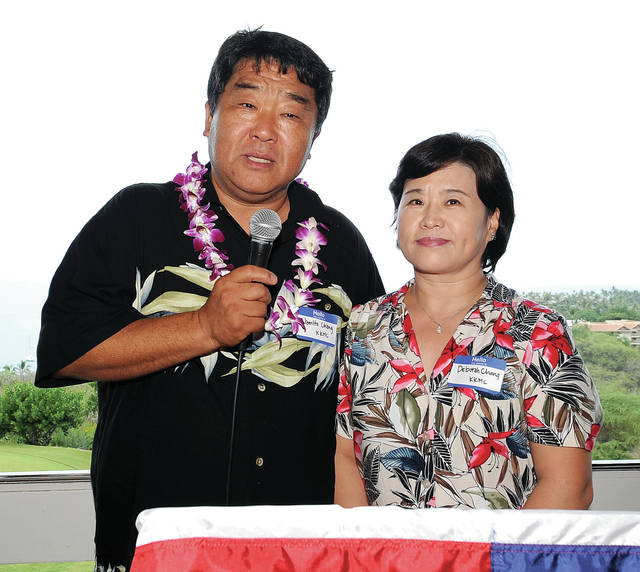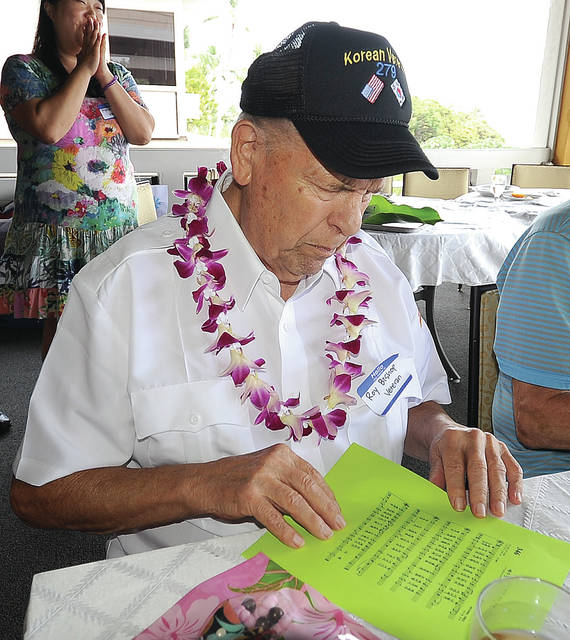KAILUA-KONA — On June 25, 1950, 75,000 troops from the Korean People’s Army crossed the 38th parallel that divides the Korean peninsula into north and south, invading the Republic of Korea after years of tension.
It would be three years, one month and two days until an armistice would be signed at Panmunjom, but only after the deaths of hundreds of thousands of soldiers on both sides, including 36,574 Americans who died in the conflict.
On Friday, members of the Kona Korean Mission Church hosted a banquet for veterans of the Korean War.
The banquet, held at Amici Vista Bar and Grill at the Kona Country Club, gave the church and the area’s Korean community an opportunity to honor the veterans who fought in that war and ensure their sacrifice isn’t forgotten.
“We want to teach our second generation so we don’t forget about (the veterans’) sacrifice and their loss,” said Charlie Ine, who was 5 years old and living in Korea at the time of the war. “I want to say to (the younger generations), don’t forget the love of the United States.”
Ine, an elder at the Korean Mission Church, recalled there not being much food in those times and even in the decade after the war ended.
“And now we are probably — in country ranking — 10th in the world as the richest country,” he said with an interpreter. “And I believe for us to be this prosperous, there are many moving parts to this, but I think a major reason for this is because of your sacrifice.”
Ron Cole, deputy commander of the Korean War Veterans Association Post 279, told the crowd he and others were glad to have gone to Korea, though they “may not have realized it at the time.”
“We were very proud and very happy to come to Korea and help you people,” he said. “We are very proud of what Korea has become.”
Cole was 19 and in his first year of college at Sacramento City College when he joined the U.S. Army toward the end of the war.
He enlisted and was told he was to be made an officer, which meant he’d have to be in infantry.
The company, he said, was told they were going to Germany. Cole, on the other hand, was headed to officer candidate school.
“The company went to Germany and I went to Korea,” he said.
Cole said he was in Korea for eight weeks until a polio outbreak caused him and everyone else in that group back to the United States.
For some at the luncheon, the event was an important opportunity to remember those who fought in the war and express hope for their country.
“This is something we must recognize more than any other year,” said Namho Chang.
“Because just what’s happening all around the world, what’s going on with North Korea, what’s happening with (Otto) Warmbier.”
Chang said that given the many lives that were lost in Korea, the least he can do is keep that memory alive through future generations.
